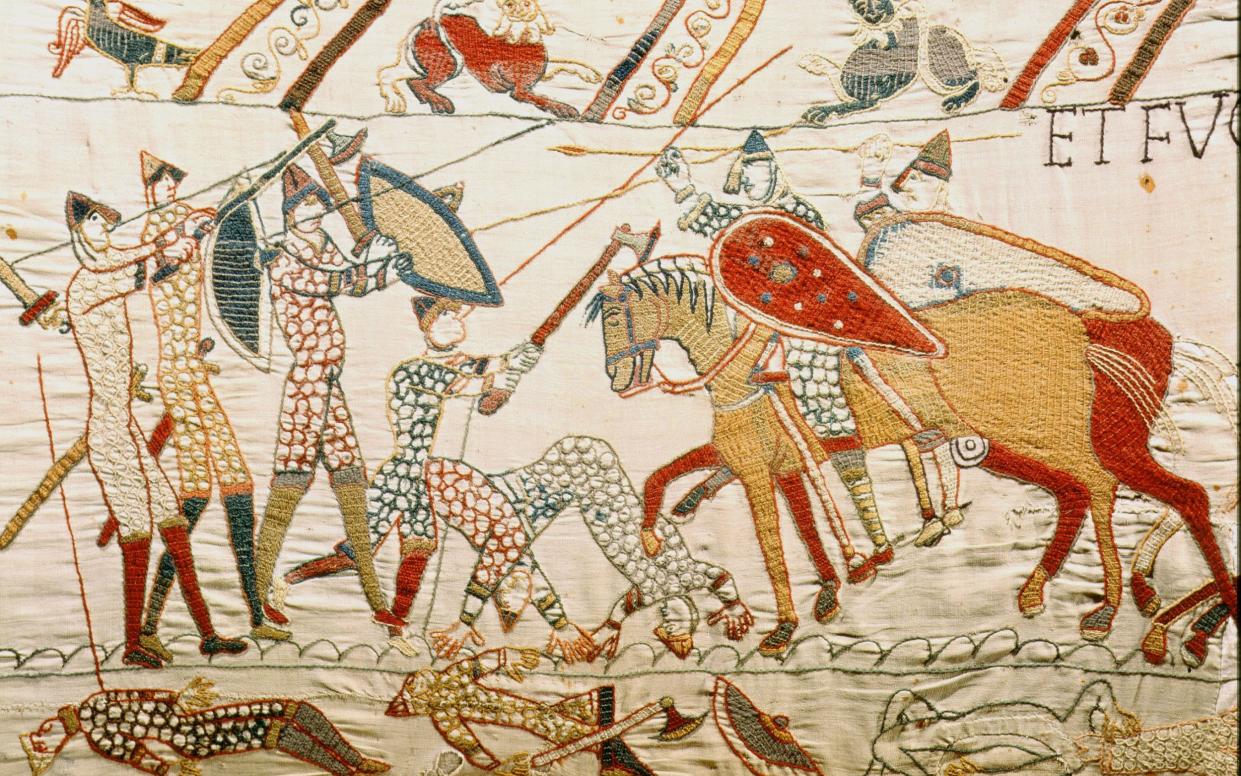Racially diverse cast to play Anglo-Saxons in BBC drama

Anglo-Saxons will be played by a diverse cast in a new BBC historical drama about the Battle of Hastings.
The eight-part series King and Conqueror will tell the story of Harold and William’s epoch-defining struggle for the throne of England in 1066.
Some Anglo-Saxon characters, including a real 11th-century leader, will be played by a diverse set of actors.
Jason Forbes and Elander Moore have joined the cast of the drama which boasts James Norton and Nikolaj Coster-Waldau in starring roles.
Adding diversity to a high medieval period setting follows the BBC’s “colour-blind” casting of non-white stars as Tudor courtiers in another upcoming historical drama, Wolf Hall: The Mirror and the Light.
King and Conqueror is a CBS Studios co-production series acquired by the BBC.

When announced in 2023, CBS Studios executive Lindsey Martin said the scripts would offer “a bold and fresh take on a story that has endured for nearly 1,000 years”.
The BBC said at the time that the series would bring “Harold and William to life” with details of their personal lives, adding: “In the UK we learn about William the Conqueror, the Battle of Hastings and King Harold’s gruesome death in our school history lessons – but those headlines are all most of us can remember.”
The cast includes Norton as Harold Godwinson and Game of Thrones star Coster-Waldau as William, Duke of Normandy, alongside co-stars Juliet Stevenson and Clemence Poesy.
Without any official announcement, further details have emerged of greater diversity in the cast, with up-and-coming talents Forbes and Moore chosen for the roles of Anglo-Saxons.

Forbes will play the fictional character Thane Thomas, with the “thanes” being a layer of nobility in the ethnically homogeneous society of Anglo-Saxon England.
Moore, of Trinidadian descent, will play the real historical figure of Morcar, an Earl of Northumbria who fought against Viking and Norman invaders, before being subdued by William after the battle of Hastings.
Morcar, whose parents were Anglo-Saxon nobles, later rebelled against William’s rule. The colour-blind approach has drawn criticism, with historian and sometime BBC collaborator Dr Zareer Masani saying: “Some of us, including people of colour, grew up thinking actors ought to look like characters they played.”
He warned that going against this approach could be “hugely confusing and downright misleading” adding that it was “absolutely crazy that they’ve applied this colour-blindness to a period when Britain was at its least multicultural, before even the Norman Conquest”.

Cambridge historian Prof David Abulafia, referencing the recent decision of the Anglo-Saxon England journal to scrap its name, said: “ Since the whole series will undoubtedly bear little relation to historical fact, I think we shall have to put up with the bizarre notion that there were black earls in Anglo-Saxon England.
“All the more so, since we are no longer supposed to talk about ‘Anglo-Saxons’. If they didn’t exist, we can do what we like.”
Several period series have chosen to disregard realistic depictions of historical demographics to facilitate a diverse cast.
Bridgerton, based on a series of romantic novels, has cast non-white stars for the roles of multiple Regency-era nobles, and Queen Charlotte.
It emerged in April 2024 that the follow-up series to the acclaimed Wolf Hall would employ a diverse cast to portray courtiers in 16th-century England, including the portrayal of white historical figures.
Lady Margery Seymour, the mother of Jane Seymour, would be played by Sarah Priddy, a British actress of Bahamian descent. Seymour’s sister-in-law Anne would be played by Cecilia Appiah, a British mixed-race actress, and Thomas Wyatt, the Tudor courtier and poet who introduced the sonnet to England, by Amir El-Masry, an Egyptian-British actor.
The BBC and CBS Studios have been contacted for comment.
